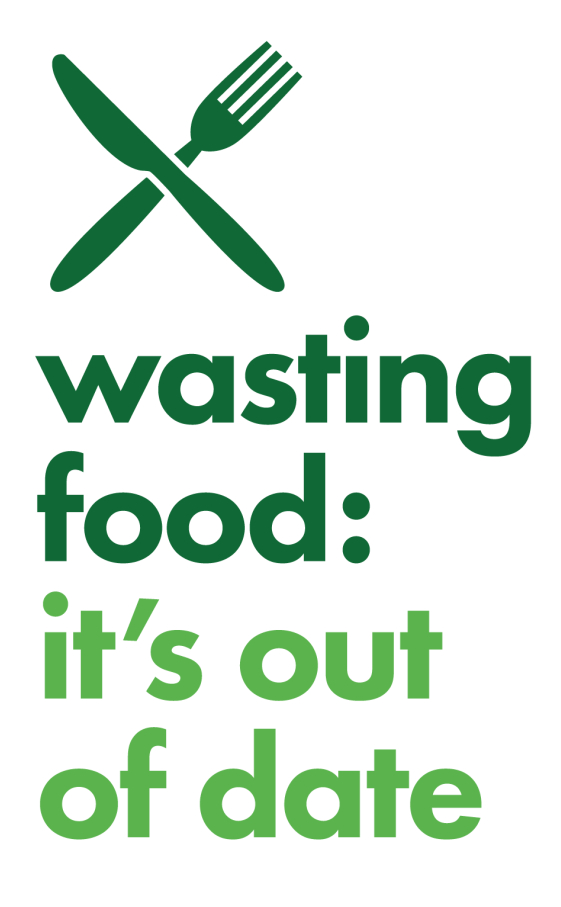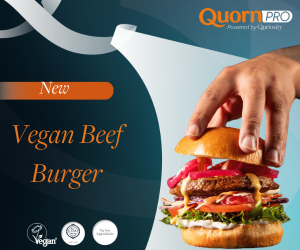FOOD WASTE INTELLIGENCE
Waste has emerged as one of the defining sustainability issues of our modern food system. Up to half the food produced globally is never consumed and in the UK 12m tons of food is thrown away annually, most of which is avoidable.
Foodservice and hospitality companies throw away 920,000 tons of food waste every year, about 13% of which is generated in the education sector.
This commitment to being part of the solution, for members and the Industry at large, has led to this important piece of research. Food waste is one of the biggest problems that the foodservice sector must tackle – we throw away 920,000 tons of food every year, of which 75% is avoidable; the numbers there speak for themselves.
Take a look at the TUCO and WRAP documents in the Documents section below for further information.
Public Sector Catering - PSC100 20% Less Meat Campaign
The PSC100 group comprises caterers, dietitians, politicians, healthy eating campaigners and suppliers who operate in the public sector and use their collective 'clout' to drive government legislation and action towards helping people adopt healthier lifestyles.
Public sector catering operators are being encouraged to sign-up to a campaign aimed at bringing down the amount of meat on their menus by 20% across schools, hospitals, universities and care homes. This is the same as the cut proposed by the UK’s Committee on Climate Change report published in January 2020.
The Pledge - If you’d like to sign up and join the many public sector caterers who are already working to make the 20% reduction in meat, then click here
Watch and share the Supporting video Supporting British Farming and Fishing
Friends of the Earth
In support of the PS100 20% Less But Better campaign, Friends of the Earth have launched Kale Yeah, a sustainability scheme  that helps caterers to reduce meat on menus and serve more plant-based dishes.
that helps caterers to reduce meat on menus and serve more plant-based dishes.
Kale Yeah! is not about taking away choice, variety or satisfaction, it is about serving delicious, healthy and sustainable food that keeps customers coming back for more.
Kale Yeah! has three strands – caterers can choose which elements they want to implement:
- Rebalance menus to shift the focus away from animal products.
- Incentivise plant-based eating by launching a loyalty scheme.
- Promote healthy, ethical and sustainable menus all year.
Resources include a caterers’ toolkit, a set of menus showing how easy swaps can reduce meat and dairy content by more than 50%, and promotional artwork that can be used on menus, social media and table displays.
COURTAULD COMMITMENT 2025
TUCO were one of the founding signatories of The Courtauld Commitment 2025, which launched nationally on 15th March 2016.
The Courtauld Commitment 2025 is a world-leading ten-year voluntary agreement that brings together leading organisations from across the Foodservice Industry to tackle waste levels, greenhouse gas emissions and water intensity. All those involved will work collaboratively to reach the shared ambition of cutting the resources needed to provide food and drink in the UK by one-fifth in the next decade. TUCO are a business signatory to WRAP’s Courtauld 2025 commitment bringing together organisations across the food system from producer to consumer, to make food and drink production and consumption more sustainable. TUCO Category Managers attend the following steering groups.
- Fresh Produce - Jane Eve, Head of Contracts
- Waste – Mandy Johnston, Category Manager
- HaFS - Mandy Johnston, Category Manager
- Dairy – Hannah Myton-Wright, Category Manager
- Meat – Kim Ashley, Category Manager
- Wales – Jane Eve, Head of Contracts
- Scotland – TBA as the group hasn’t yet met
To get involved and join the conversation follow #Courtauld2025 on Twitter or visit the WRAP website for details on Courtauld.
GUARDIANS OF GRUB
The Guardians of Grub campaign was developed by WRAP to cut food waste from farm to fork. It's been developed to inspire action at every level of the hospitality and food service profession. The sector itself is responsible for ten per cent (one million tonnes) of the total 10.2 million tonnes of food wasted in the UK each year, with the cost of avoidable food waste varying between 38p and £1 for every meal it serves.
The Guardians of Grub campaign is supported by a dedicated microsite packed with free materials. Research by WRAP found that on average 21% of food waste arises from spoilage, 45% occurring in food preparation and 34% from consumer plates. The campaign accompanies a dedicated Action Plan, which sets out specific milestones the sector needs to achieve in delivering on the UK’s part in the United Nation’s Sustainable Development Goal 12.3 (to halve global food waste by 2025), and the UK Food Waste Reduction Roadmap.
A Guardians of Grub video touches on the environmental impacts of food. These include the amount of resources, water, land, energy and time required to produce food, as well as methane gas produced through decomposing food waste disposed of in landfill.
Visit the microsite here.
BSI Group, also known as the British Standards Institution, is supporting the Guardians of Grub campaign with two new videos showing the effects of food waste on climate change and what hospitality and food service businesses can do to tackle it.
Food Waste Reduction Roadmap
The IGD and WRAP launched the ground-breaking Food Waste Reduction Roadmap in 2018, to help food and consumer goods companies reduce their food waste. The UK's largest retailers, food producers and manufacturers, and hospitality and food service companies have committed to milestones laid out in the Food Waste Reduction Roadmap.
The Food Waste Reduction Roadmap encompasses the entire supply chain from field to fork. It shows actions that large businesses will take to address food waste in their own operations, support their suppliers in taking action, and engage with consumers and innovate to reduce their food waste. The ambitious aim is to halve fifty percent of the UK’s largest 250 food businesses measuring, reporting and acting on food waste by 2019, and all 250 companies by 2026. WRAP will track and report progress against the Courtauld 2025 target and roadmap milestones.
To accompany The Food Waste Reduction Roapmap and toolkit there is a range of guidance and templates to help you 'Target, Measure and Act' on food waste.
Progress Report 2020
At this exceptional time it is even more important that no good food goes to waste, and implementing Target, Measure, Act has helped food businesses respond to the Covid-19 crisis. Having transparency on levels of surplus and waste, and mechanisms to ‘Act’, ensures that as much surplus ‘good food’ as possible can be redistributed rather than wasted. The UK is halfway to achieving UN Sustainable Development Goal (SDG) 12.3 and halving food waste by 2030, but it is critical that all large food businesses in the UK follow the lead shown by the increasing numbers committing to the RoadmapAt this exceptional time it is even more important that no good food goes to waste, and implementing Target, Measure, Act has helped food businesses respond to the Covid-19 crisis. Having transparency on levels of surplus and waste, and mechanisms to ‘Act’, ensures that as much surplus ‘good food’ as possible can be redistributed rather than wasted. The UK is halfway to achieving UN Sustainable Development Goal (SDG) 12.3 and halving food waste by 2030, but it is critical that all large food businesses in the UK follow the lead shown by the increasing numbers committing to the Roadmap
Outlining progress made in the second year of the Food Waste Reduction Roadmap.
More than 70 new food organisations have joined the Roadmap in the last twelve months, committing to ‘Target, Measure, Act’ on food waste in their operations, supply chain and customer base.
Businesses implementing 'Target, Measure, Act' have increased from 121 to 171.
180,000t of food (worth £300m) across 45 companies reporting comparable data has been saved from becoming waste by Roadmap members.
New Whole Chain toolkit equips businesses to tackle supply chain food waste farm to fork.

Wasting Food - It's Out Of Date
WRAP has launched a new brand called Wasting Food: It’s Out of Date to highlight the huge impact food waste is having on climate change.
- 70% of the food that is wasted in the UK is wasted by citizens in their own homes
- That’s 4 ½ million tonnes of food that could have been eaten being throw away every year
- Citizens are the ones who can make the biggest difference when it comes to the UK’s food waste problem
- WRAP wants to kickstart national action that citizens can stand behind and drive
- The goal is to make wasting food feel like an anti-social behaviour
Key Messages of the Campaign
- Our food is as precious as our planet
- Throwing food away has consequences –it contributes to climate change by wasting energy and the resources it takes to produce it
- Every little bit of edible food we waste contributes to climate change –be it leftovers from dinner, an unopened bag of salad that’s gone out of date, or slices of uneaten bread.
- If we all go one day without wasting food, it will have the same positive environmental impact as planting half a million trees.
- If we all go one day without wasting food, it will have the same positive environmental impact as taking 23,000 cars off the road a year.
Use this Link to find out more and access assets including posters, animated posters, social media assets, Partner Toolkit and Brand Pack. You can sign up with your email address to download the assets.
DEFRA
Department for Environment Food & Rural Affairs (DEFRA) are the UK government department responsible for safeguarding our natural environment, supporting our world-leading food and farming industry and sustaining a thriving rural economy. The DEFRA broad remit means they play a major role in people's day-to-day life, from the food they eat and the air they breathe, to the water they drink.
FAIRTRADE
Fairtrade is about better prices, decent working conditions and fair terms of trade for farmers and workers. It supports the development of thriving farming and worker communities that have more control over their futures and protects the environment in which they live and work. Supporting Fairtrade is your opportunity to connect with the people who grow the produce that we all depend on.
A Fairtrade University or College is one that has made a commitment to supporting and using Fairtrade.
How to become a Fairtrade university or college.






